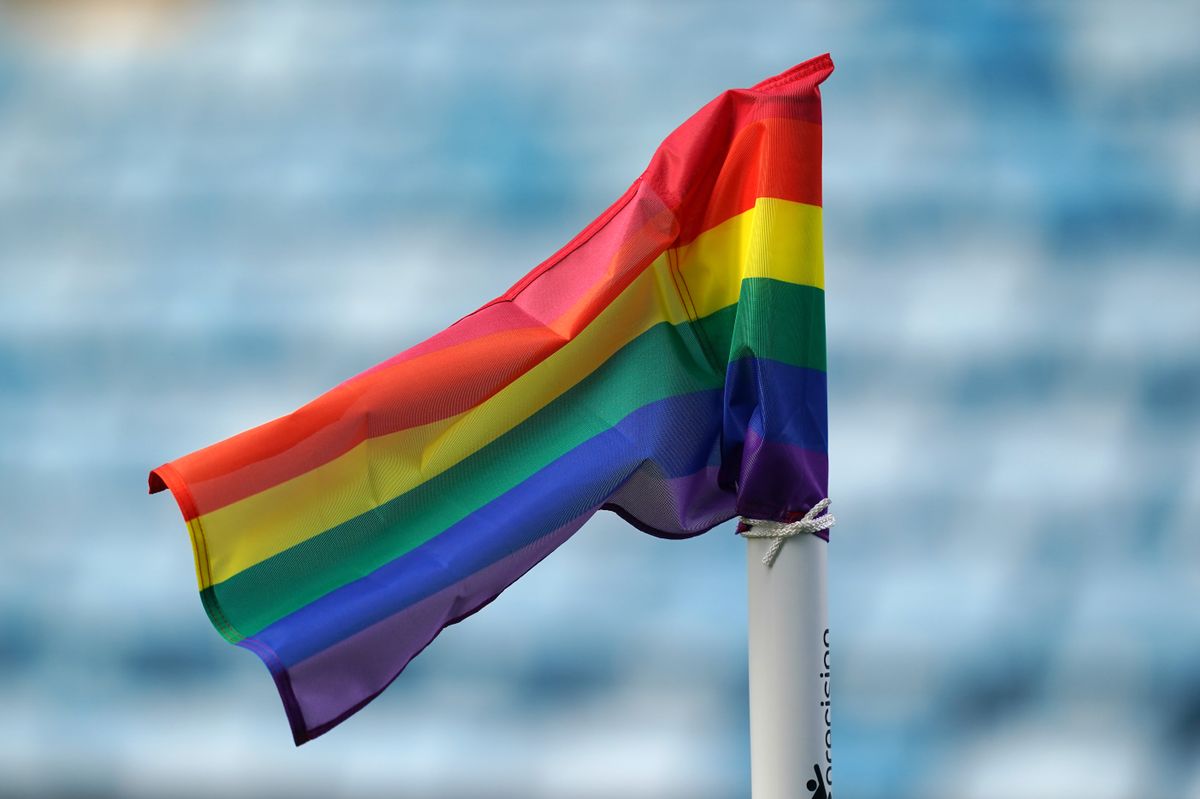

Throughout the EFL, teams are playing with a special edition rainbow football. Talk of Pride is everywhere from the top of the Championship to the foot of League Two, and clubs are marking the occasion with gusto.
This is the Football v Homophobia Month of Action. FvH is an international initiative opposing homophobia in football, a self-evidently worthwhile cause supported without hesitation by league clubs.
While the allyship is necessary, there was a time when it seemed the message was at least understood by the majority to be one that warranted footballs weighty communication platform. Now, more than at any time in generations, clubs proactively opposing homophobia is a subversive act.
Footballs anti-homophobia message is more important than ever
This Month of Action has the explicit backing of more than 200 clubs, including a third of those in the EFL signing up as champions. Many of them, including Coventry City, are working with their LGBTIQ+ supporter groups. Proud Sky Blues enjoyed the full-blooded support of the club in making Tuesdays Championship meeting against Queens Park Rangers their designated Month of Action fixture.
FourFourTwo was in attendance as the Sky Blues defeated QPR with a header in stoppage time from defender Bobby Thomas and made a hard-won return to winning ways. Off the field, the Month of Action fixture went off without a hitch. They always do.
Liam Kitching was on the cover of the Sky Blues matchday programme, which was also emblazoned with the Football v Homophobia logo and a design motif based on the Pride flag.
Among several other Proud Sky Blues pieces there was a feature about the Month of Action, announcing that [the] squad will wear special t-shirts during the warm-up for the game, while coaching and non-playing staff will also wear badges to display their support The players will again walk out for the game next to rainbow balloon towers.
That was just the beginning. Coventry have been shortlisted in the Professional Game category in next months Football v Homophobia awards and their commitment to the message on this chilly Tuesday night in the West Midlands was bold and forthright.
But when it comes to social media, the Sky Blues and all other clubs increasingly find themselves on the end of the kind of comments that used to be considered beyond the pale. If nothing else, it proves the need for Football v Homophobia in the first place.
Footballs relationship with social media is fundamentally broken. Where club tribalism once reigned, the truly dismal battlegrounds of the culture war now dominate below the fold.
Clubs are mocked and condemned every time they lend their voices to campaigns that target the scourges of homophobia, racism and sexism, to label just three. You know the deal: cry-laugh emoji and accusations that football is shoving this agenda or that down peoples throats for reasons unknown.
It has the potential to become a problem or at least a consideration for clubs by putting them in conflict with a tiny minority of their support. Theyre not always real fans often theyre no more than bots funded by political bad actors but sometimes they are, now more than ever.
Footballs presumption of inclusiveness is paramount. Its a message echoed by clubs all over the country on a regular basis and its noteworthy that it meets no resistance in almost every instance.
Out in the real world, on the ground and in the grounds, most (not all) supporters value inclusion or are indifferent enough to just keep their less edifying opinions to themselves.
There was not a peep of dissent at the Coventry Building Society Arena. There was never any expectation that there would be.
The basic idea that football is for everyone isnt up for debate. If we dont have that, we dont have much. Its unfortunate that this requires proactive advocacy and allyship, but it does.
Its easy for footballs institutions to be allies when theres no opposition but football might be heading for a time when its not easy any longer, at least online. The real test of clubs advocacy is approaching.
Standing up for something is harder when there are antagonists involved too, not least when it becomes necessary to ignore or even challenge your own. Sooner or later, as culture fractures and frays, footballs army of social media managers will be put in a position that demands it.
TOPICS

